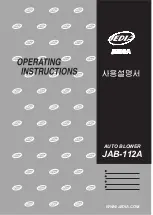
gb
-
22
-
The lithium-ion battery can be charged at any time wi
-
thout reducing its service life. Interrupting the charging
procedure does not damage the battery.
The lithium-ion battery is protected against deep
discharging. When the battery is empty, the machine is
switched off by means of a protective circuit: The
inserted
tool no longer rotates.
Temperature Dependent Overload Protection
When using as intended for, the power tool cannot be
subject to overload. When the load is too high or the
allowable battery temperature range of 0–50 °C is ex
-
ceeded, the speed is reduced. The power tool will not
run at full speed until reaching the allowable battery
temperature. position. Unintentional actuation of the
On/Off switch can lead to injuries.
Open the keyless chuck 2 by turning in rotation di
-
rection , until the tool can be inserted. Insert the tool.
Firmly tighten the collar of the keyless chuck 2 by hand
in rotation direction . This automatically locks the drill
chuck.
The locking is released again to remove the tool when
the collar is turned in the opposite direction.
2_INSTRUCTIONS FOR USE
PLACEMENT TOOL
Read all safety warnings and all
instructions.
Failure to follow the warnings and
instructions may result in electric shock,
fire and/or serious injury.
ASSEMBLY (FIG. B)
Before any work on the machine (e. g., maintenan-
ce, tool change, etc.) as well as during transport
and storage, set the rotational direction switch to
the centre position.
Unintentional actuation of the On/Off switch can lead
to injuries.
Battery Charging
Do not use other battery chargers.
The supplied
battery charger is designed for the Lithium- Ion battery
in your machine.
Observe the mains voltage!
The voltage of the power
supply must correspond with the data given on the
nameplate of the battery charger. Battery chargers
marked with 230 V can also be operated with 220 V.
The battery is supplied partially charged. To
ensure full capacity of the battery,
completely charge the battery in the battery
charger before using your power tool for
the first time.
The lithium-ion battery can be charged at any time
without reducing its service life. Interrupting the
charging procedure does not damage the battery.
When the battery is empty, the machine is switched off
by means of a protective circuit: The inserted tool no
longer rotates.
Do not continue to press the On/Off switch
after the machine has been automatically
switched off. The battery can be damaged.
The battery is equipped with a NTC temperature control
which allows charging only within a temperature range
of between 0 °C and 45 °C. A long battery service life is
achieved in this manner.
The charging procedure begins as soon as the mains
plug of the battery charger is plugged into a socket
outlet and the charge connector 17 is plugged into the
socket 16 on the bottom of the handle.
The battery charge-control indicator 5 indicates the
charging progress. During the charging process, the
indicator flashes green. When the battery charge-
control indicator 5 lights up green continuously, the
battery is fully charged.
During the charging procedure, the handle of the
machine warms up. This is normal. Disconnect the
battery charger from the mains supply when not using
it for longer periods.
The power tool cannot be used during the charge
procedure; it is not defective when inoperative during
the charging procedure.
Protect the battery charger against moisture!
Observe the notes for disposal.
Dust/Chip Extraction
Dusts from materials such as lead-containing coatings,
some wood types, minerals and metal can be harmful
to one’s health. Touching or breathing-in the dusts
can cause allergic reactions and/or lead to respiratory
infections of the user or bystanders.
Certain dusts, such as oak or beech dust, are
considered as carcinogenic, especially in connection
with wood-treatment additives (chromate, wood
preservative).
Materials containing asbestos may only be worked by
specialists.
– Provide for good ventilation of the working place.
– It is recommended to wear a P2 filterclass respirator.
Observe the relevant regulations in your country for
the materials to be worked.
ELECTRICAL CONNECTION (FIG. D)
Battery Charge-control Indication
The status indicator on charger, consists of two LEDs:
















































